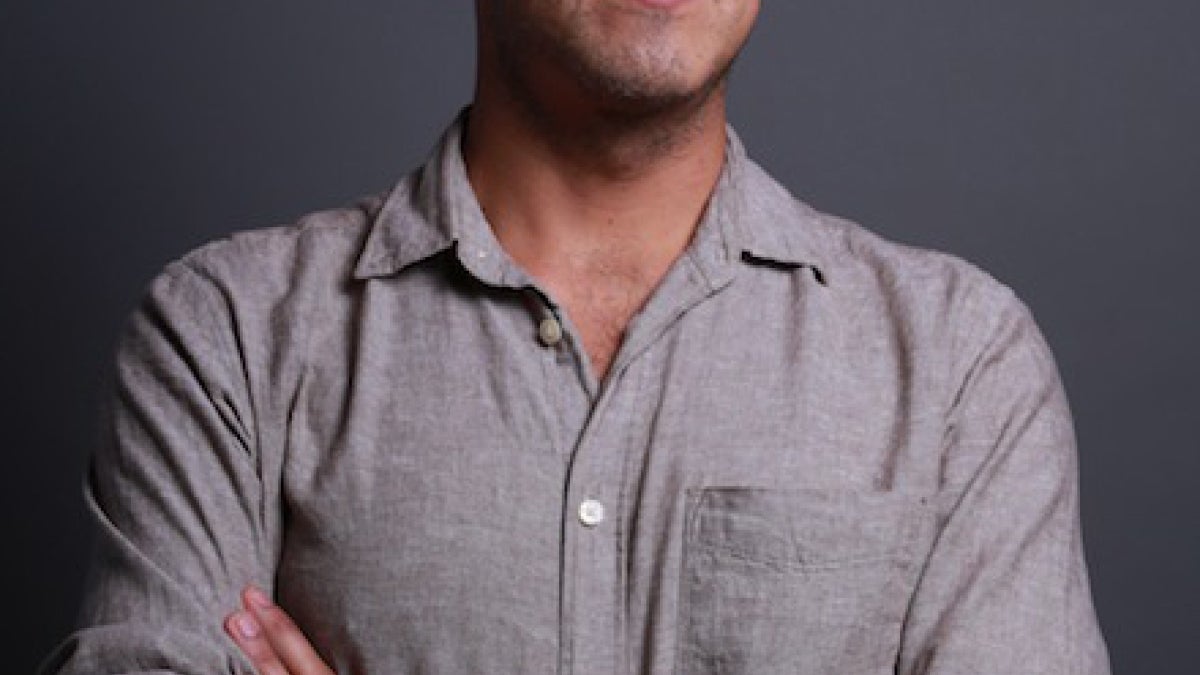Mexico Fulbright Scholar recounts ASU journey

Mexico Fulbright Scholar Carlo Altamirano Allende graduates May 5, 2019, with a PhD in social dimensions of science and technology. Courtesy photo
Editor’s note: This is part of a series of profiles for spring 2019 commencement.
When PhD student and Mexico City native Carlo Altamirano Allende earned his Fulbright Scholarship to study in the U.S., he had a tough choice to make — where to go to school.
Arizona State University was one of his options, but the image of Arizona in Mexico at the time remained unflattering in the wake of an Arizona senate bill passed years earlier that was perceived by many as anti-immigrant.
“I knew nothing about Arizona,” Altamirano said. “In Mexico City, Arizona was very famous in the newspapers because of Sheriff (Joe) Arpaio and SB1070.”
Not deterred, Altamirano started reading more about Phoenix while also researching the types of work going on at different universities, including ASU.
“Yes, the city of Phoenix looked like a totally different world than Mexico City,” he said. “But then I figured, sure there are political issues but that also means that there are very interesting people there doing cool things.”
An avid traveler, Altamirano was looking for a temporary change in scenery and a more permanent change academically.
Altamirano had studied thermodynamics theory of complex systems, i.e. physics. He decided to shift gears after becoming interested in the inequality in distribution of resources among scientists that can exist in a society. That led him to ASU Professor Clark Miller’s work on the social dimensions of science and technology. Altamirano reached out and interviewed with Miller remotely. He earned entry into the program and arrived in Tempe in 2012.
This semester Altamirano earns a PhD in social dimensions of science and technology. His research has taken him back to Mexico to learn about the impact of the nation’s constitutionally mandated energy reforms on indigenous communities.
Here Altamirano shares insight into his ASU journey and where he hopes to go next.
Question: What has your experience been like at ASU?
Answer: It has been a wonderful and challenging experience. I feel very privileged to have the opportunity to be amongst amazing scholars within a great nurturing environment. It has been challenging. A PhD program like mine demands a huge commitment. Due to the interdisciplinary nature of it and of the entire university, within a world built on disciplinary grounds, I had to learn and unlearn a lot practices, methods and theories. This will help me be ready to go into the real world and contribute to solving some of the most pressing problems of our times from a perspective that I could have only learned at ASU.
Q: What has been your favorite part of studying in the U.S.?
A: My favorite part of studying in the U.S. is twofold: on the one hand, the multicultural aspect of the communities that make up this country and that is present in the university. On the other, all the contradictions that exist here as a very powerful and dynamic democracy. It is great to have a firsthand perspective of things that happen here and have a ripple effect in the entire world.
Q: Can you describe one of the most interesting aspects of the research you have conducted while at ASU?
A: A very interesting aspect or lesson derived from my research is that technology by itself will not solve any problems related to achieving sustainable development goals. We need to look at the entire ecosystem of innovation and define metrics that take into account human wellbeing, human rights and inclusion. In the case of renewable energy technologies, I have found that some of the deployment of those technologies have failed to reduced inequalities, poverty level and increase energy access. On the contrary, technologies have enhanced some of these problems because of a failure to account for the metrics within the design of those systems. I focused on Mexico, which is experiencing one of the most aggressive energy transitions in the world.
Q: What type of work do you hope to do after graduation?
A: I hope I can find a job in Mexico City that allows me to apply everything that I learned during this PhD program … at a think tank or an academic position where I can be involved in the science-policy interphase.
Q: What advice would you give to students from Mexico studying in the U.S.?
A: To work hard and to always look for a community within the university or outside where they feel supported and where they can thrive.
More Sun Devil community

ASU first-gen college student is a leader in sustainability, social justice
Born and raised in Phoenix in a single-parent household, Mauricio Juarez Leon faced struggles growing up that included poverty,…

These real-life heroes found educational support through ASU Online
When “God Bless America” played at Dani Bermudez’s naturalization ceremony, the moment gave her chills and cemented her resolve…

Sun Devils in the sky
“Today was probably one of the most rewarding days I’ve had at ASU."That was the sentiment given by Andrew Vandertoorn, a C-17…